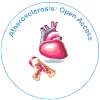开放获取期刊获得更多读者和引用
700 种期刊 和 15,000,000 名读者 每份期刊 获得 25,000 多名读者
抽象的
Psychiatric Manifestations of Head and Neck Cancers as Seen in a Private Tertiary Hospital
Masahide Higaki, Kentaro Shimokado
Background: Psychiatric problems of patients with head and neck cancers usually result from disfiguring, illness and treatment, adjustment to alterations of speech, eating and other functions including sexual activity. Alteration of body image, speech and eating are often seen. Psychiatry comorbidities are generally common findings in head and neck cancer patients. The major associated psychiatric disorders in them are anxiety and depression.
Materials and Methods: Reports of four of our patients diagnosed of Head and Neck Malignancies who developed psychiatric symptoms in the course of treatment are presented. The medical records of the patients were retrieved, information sought included biodata, clinical and histological information as well as treatment progression.
Results: A 55yrs old male with transglottic malignant laryngeal tumour developed severe depression in the course of treatment. A second 45yr old male diagnosed of a malignant sinonasal tumour developed Chemotherapy induced psychosis to rule out a frontal lobe syndrome. The third 44yr old female with malignant sinonasal tumour developed low mood while on treatment but did not meet the criteria for a psychiatric illness. The 4th, a 76yrs old male diagnosed of a malignant laryngeal tumour became delirious following diagnosis and did not take up the treatment offered.
Conclusion: The tendency for patients with head and neck tumors to develop psychiatric disorders in the course of management is high on account of visible changes in body structures and limitations of functions.
Recommendations: There is the need for a multidisciplinary approach and the relevance of psychiatrists and psychologists in pretreatment evaluation as well as in the course of treatment.

 English
English  Spanish
Spanish  Russian
Russian  German
German  French
French  Japanese
Japanese  Portuguese
Portuguese  Hindi
Hindi